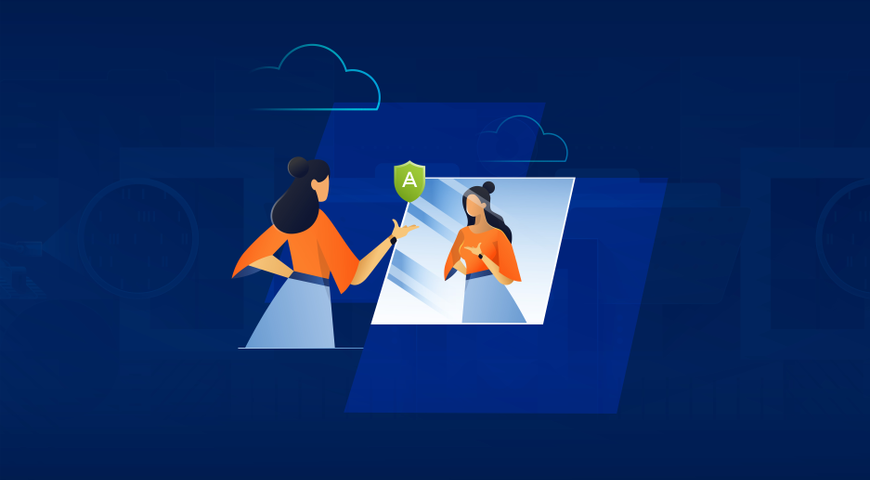
Have you ever sat in a restaurant trying to decide between two desserts and said to yourself “I wish I could get both”? It’s not that you’re greedy or gluttonous: you just want the best finish for your meal.
For businesses exploring where they should store their digital assets, choosing the right cloud solution is a bigger decision than what to eat. It’s important to have a choice in how you store and access data, in order that you meet the unique needs of your business and how that data is used.
Unlike dessert decisions, IT pros don’t have to make an all-or-nothing choice between public and private cloud – they can get a bit of both to meet their organization’s specific needs.
With its new partnership with Google Cloud, Acronis is ensuring companies of all sizes not only get the choice they want, but they can decide what flavor it is.
Cost savings of public cloud
Some people like the convenience of the public cloud, since it allows them to shift back-end infrastructure to an off-site solution, reducing their resource commitments – including financial costs, technical requirements, and even physical space.
Established companies can more easily focus their onsite computing to business-critical needs by moving less intensive needs to Google Cloud, Amazon Web Services, Microsoft Azure or another solution. At the same time, new companies can turn to these third-party vendors to buy Infrastructure as a Service (IaaS), avoiding the expense of their own dedicated data center.
There are limits to public cloud solutions that many businesses need to take into account, however.
Clear control of private cloud
The cost savings you might get from public cloud solutions need to be balanced against the speed, accessibility, security, and regulatory requirements of your company. If your company cannot tolerate latency in accessing data or risk that the data center is offline when you need a file, public cloud may not be the best choice.
Similarly, if you operate in an industry that’s highly regulated, like healthcare or financial services, there may be limits to where you store data. Under the European Union’s soon-to-be-enacted GDPR, for example, companies who do business with EU citizens must store their data within Europe. Unless your vendor lets you choose “your” data center, public cloud might risk a violation.
That’s why many companies are investing in on-premise, private cloud. Yes, the company absorbs the cost of establishing and maintaining their data center, but it ensures they enjoy the benefits of cloud without sacrificing the speed, security or regulatory control they need.
Hybrid cloud is the way forward
Increasingly companies are finding that hybrid cloud storage gives them the flexibility to offload non-critical functions to a separate public cloud, while keeping it connected to their on-premise systems so the data is portable, pliable and always available.
When done correctly, hybrid cloud storage gives the company the best of both worlds – allowing it to scale easily via the public cloud, while protecting the organization’s data independence and control.
Acronis has focused on helping businesses benefit from hybrid cloud storage, developing solutions that deliver the flexibility, infrastructure and accessibility that allow organizations to embrace a solution that works best for them. That’s why Acronis’ data protection solutions offer native integration with a number of public cloud vendors, popular hosting automation platforms, and remote monitoring and management tools.
Google Cloud partnership makes it even easier
The addition of Google Cloud to that list of vendors is just the latest example of Acronis enhancing our solutions. We’re making it easier for people to do business with Acronis without forcing them to abandon the system with which they are comfortable.
Many businesses have made significant investments in their public cloud infrastructure, yet they are interested in the superior backup, disaster recovery, and file sync and share solutions offered by Acronis. As a result, integrating Google Cloud is one of the most requested enhancements users ask for.
The new partnership makes it easier for these companies to adopt our solutions while keeping their existing public cloud –integrating Google Cloud Platform into future releases of Acronis Backup Cloud, Acronis Disaster Recovery, and Acronis Files Advanced.
Whether they work with one of our countless partners or they choose to work with Acronis directly, there are millions of Google Cloud customers who can now leverage our technology to meet their data protection and business continuity needs.
Final Thought
As businesses adopt cloud solutions for their everyday operations, they need to know that they are investing in one that will last for a long time. They need to manage costs while demanding high-level performance and meeting their regulatory obligations.
Acronis products are built for the cloud and are designed to protect all data, in all environments, including cloud workloads, data centers, on-premise, remote offices, and mobile devices. Our goal is to help companies create a cloud infrastructure that works best for their needs, and we believe the hybrid cloud is the most beneficial solution to businesses of all sizes.
By incorporating Google Cloud as well, we’re ensuring users have the flexibility, accessibility and performance they need to compete and succeed.
About Acronis
A Swiss company founded in Singapore in 2003, Acronis has 15 offices worldwide and employees in 50+ countries. Acronis Cyber Protect Cloud is available in 26 languages in 150 countries and is used by over 20,000 service providers to protect over 750,000 businesses.




